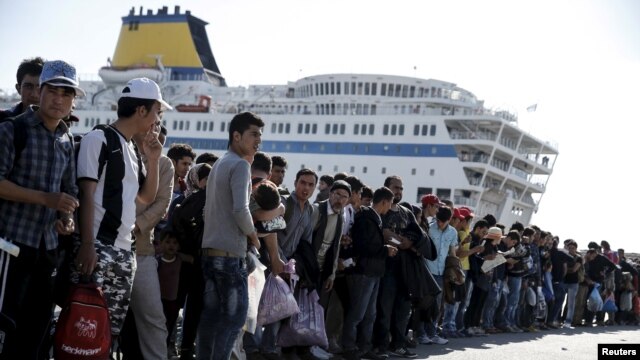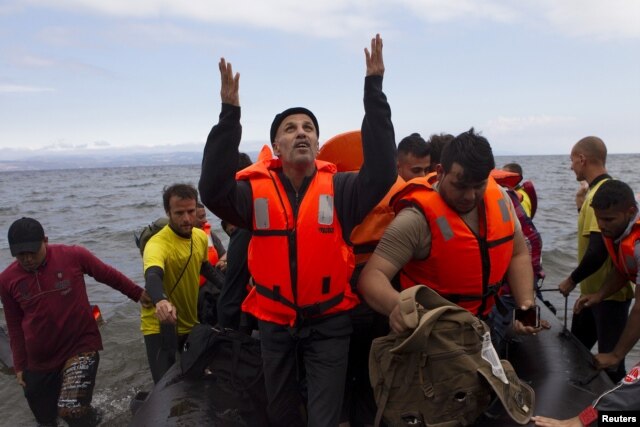It's virtually impossible for a country like Greece whose citizens are also hurting to take in such a huge number of immigrants.
Greece Says Country Cannot Handle Migrant Inflows
By Reuters 8/7/15 at 12:03 PM

Refugees and immigrants disembark from a Greek ferry after arriving in the port of Piraeus near Athens June 14. An average of 600 migrants were arriving in Greece by sea each day, many of them fleeing poverty and conflicts in Syria, Iraq and Libya, at a time when the Athens government is facing its own economic crisis, said the U.N. refugee agency UNHCR.Yannis Behrakis/Reuters
"Now is the time to see if the EU is the EU of solidarity or an EU that has everyone trying to protect their borders," he said after a meeting with ministers dealing with the influx.
The United Nations refugee agency earlier called on Greece to take control of the "total chaos" on Mediterraneanislands, where thousands of migrants have landed.
Continue reading at:
Greece Says Country Cannot Handle Migrant Inflows
Greece Says Country Cannot Handle Migrant Inflows
By Reuters 8/7/15 at 12:03 PM

Refugees and immigrants disembark from a Greek ferry after arriving in the port of Piraeus near Athens June 14. An average of 600 migrants were arriving in Greece by sea each day, many of them fleeing poverty and conflicts in Syria, Iraq and Libya, at a time when the Athens government is facing its own economic crisis, said the U.N. refugee agency UNHCR.Yannis Behrakis/Reuters
"Now is the time to see if the EU is the EU of solidarity or an EU that has everyone trying to protect their borders," he said after a meeting with ministers dealing with the influx.
The United Nations refugee agency earlier called on Greece to take control of the "total chaos" on Mediterraneanislands, where thousands of migrants have landed.
Continue reading at:
Greece Says Country Cannot Handle Migrant Inflows





